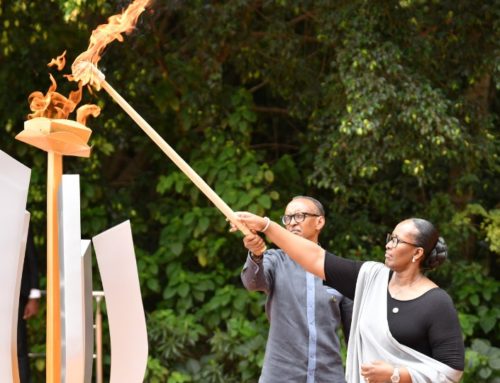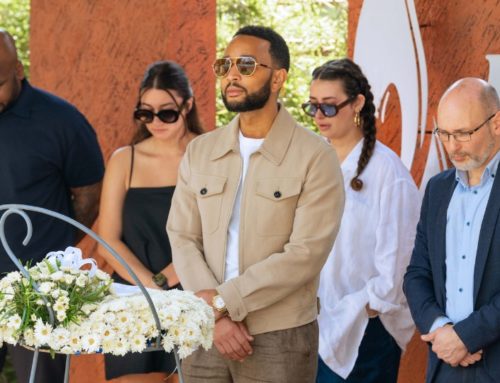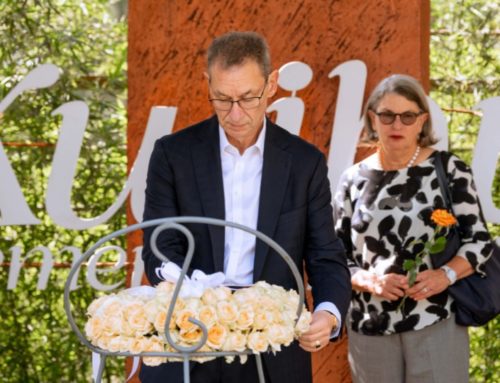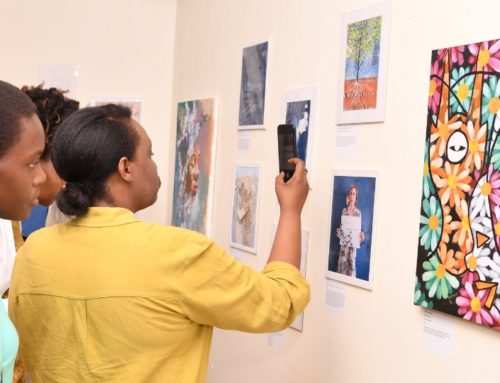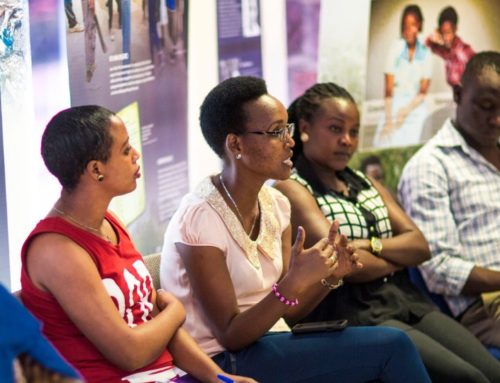Sir John Hurt, one of the UK’s best-known actors, has passed away aged 77 after an 18-month battle with pancreatic cancer. From his screen debut in 1962, the BAFTA-winning actor took on a diverse array of roles, appearing in over 120 films – not counting his many stage and television appearances. He was working right to the end.
There is, however, just one performance for which Sir John will always be remembered and loved in Rwanda: his role as ‘Father Christopher’ in the 2005 movie ‘Shooting Dogs’ (released in the US as ‘Beyond the Gates’).
Filmed in 2004, just as the Aegis Trust was in the process of establishing the Kigali Genocide Memorial, the drama involved fictional characters playing out some of the intensely difficult choices faced by people caught up in Rwanda’s 1994 genocide against the Tutsi. Set against the backdrop of real events at the Ecole Technique Officielle (today the Kicukiro College of Technology), it was filmed at the site, drawing in both survivors and confessed perpetrators as extras. Rwandan, American and British members of Aegis’ team were also involved, including founder and Chief Executive Dr James Smith.
“It was probably this combination of filming in the actual space, together with so many people who were there at the time, that gave ‘Shooting Dogs’ its realism,” says Aegis Country Director Yves Kamuronsi, who survived the genocide as a teenager in the same area of Kigali. “When ‘Shooting Dogs’ was made and screened in Rwanda, it was a really cathartic moment. For many here, ‘Hotel Rwanda’ had missed the mark, but with this film we felt that finally, an honest glimpse of our experience had been captured by Hollywood. Sir John Hurt’s powerful performance was key to that. He became a real friend to Aegis, to the survivor community, and to Rwanda as a whole. He will be very sorely missed.”
The role had a lasting impact on Hurt. He never forgot Rwanda, or the stories he encountered. In 2009, along with other stars such as Forest Whitaker, Sandra Bullock, Clive Owen and Scarlett Johansson, he lit a candle on camera for the 15th commemoration of the genocide and included a short personal message.
“When I first heard about it, I was sadly unaware, like a lot of people,” he said. “I didn’t know how serious it was. When I got there, it didn’t take very long to realise the … the horror of the reality of it all. And everybody working on our film were Rwandan – as I say, they were all survivors. Each one of their stories, less bearable than the one before it. And yet somehow, the spirit of that nation has managed to get itself together in such a way that it is putting itself to some kind of rights.”
In 2014, marking the 20th commemoration, Hurt again helped to raise awareness, joining celebrities including Jackie Chan and David Harewood in this short Kwibuka20 video.
Most movingly, Hurt sent a short personal message which was played out on a large screen in the Amahoro National Stadium to the thousands who gathered there to remember on 7th April: a reminder that though they were forgotten by the World in 1994, they are forgotten no more.
“Sadly I can’t be with you tonight,” Sir John says in his video message. “And having made ‘Shooting Dogs’, I would give anything to be back there in Rwanda to just be with you all, on this important remembrance. I wish you all the warmth in my heart. And, indeed, every possible hope that this could never possibly happen again.”
Sir John died on 27 January: the anniversary of the liberation of Auschwitz-Birkenau, and the UK’s national Holocaust Memorial Day – when the country remembers not only the victims of the Holocaust but those murdered in genocides before and since, including Rwanda.
“Sir John Hurt will always have a place in our hearts,” says Freddy Mutanguha, Aegis’ Regional Director and the Vice President of Ibuka, Rwanda’s largest association of genocide survivors. “Though he is no longer with us, we hope that his powerful performance will continue to move and inspire generations to come – not only in Rwanda but around the World.”

